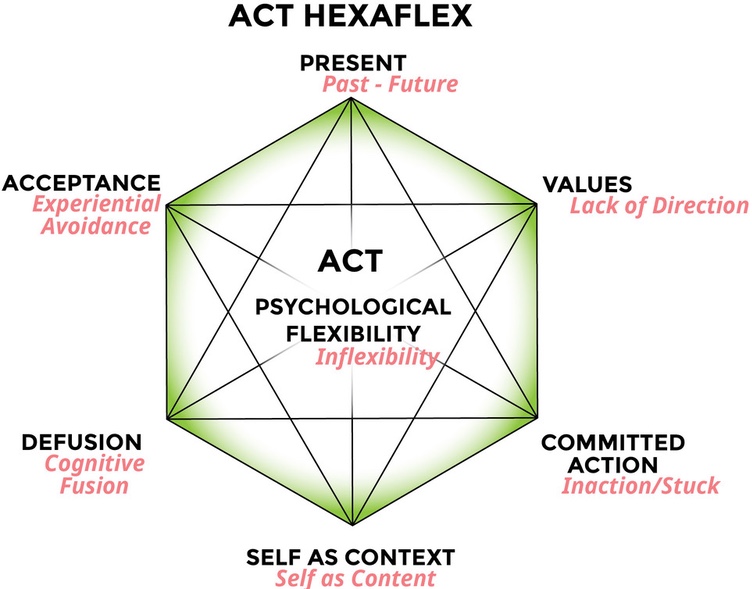Acceptance and commitment therapy (ACT) is a relatively new form of behavioral therapy. American psychologist Steven C. Hayes developed ACT in the late 20th century. In ACT, clients are taught to focus on things they can directly influence, such as their own behavior, rather than trying to control experiences that cannot be directly influenced, such as emotions and thoughts (this is called experiential avoidance). . This requires an acceptance-oriented attitude towards emotions and thoughts. According to ACT, fighting unavoidable things ultimately comes at the cost of a valuable life.
The treatment takes place on the basis of six core processes:
1. Cognitive defusion: learning to separate cognitions (knowledge, ideas or beliefs) and behavior. You can do something other than what your thoughts give you, thus giving you the freedom of choice to follow or not follow the "advice" your brain gives you.
2. Mindfulness, present: the ability to observe and undergo your experiences in the here-and-now without taking any action to avoid, control, or retain experiences
3. Acceptance: learning to stop fighting unavoidable things in life, including human suffering
4. Self-as-context: learning to see yourself in context (coherence) with your environment, your problems are not who you are
5. Clarifying values: determining what is really valuable in life, such as health, relationships, friendship, development, spirituality, creativity and so on
6. Committed action or commitment: the willingness to change your behavior step by step in the direction of the values to which you have committed yourself.
The model assumes that all core processes are interrelated and not seen separately. In combination, applying these processes can lead to the ultimate goal of ACT: psychological flexibility. The core processes are represented in the so-called hexaflex, a hexagon whose points represent the various processes aimed at the central goal.


